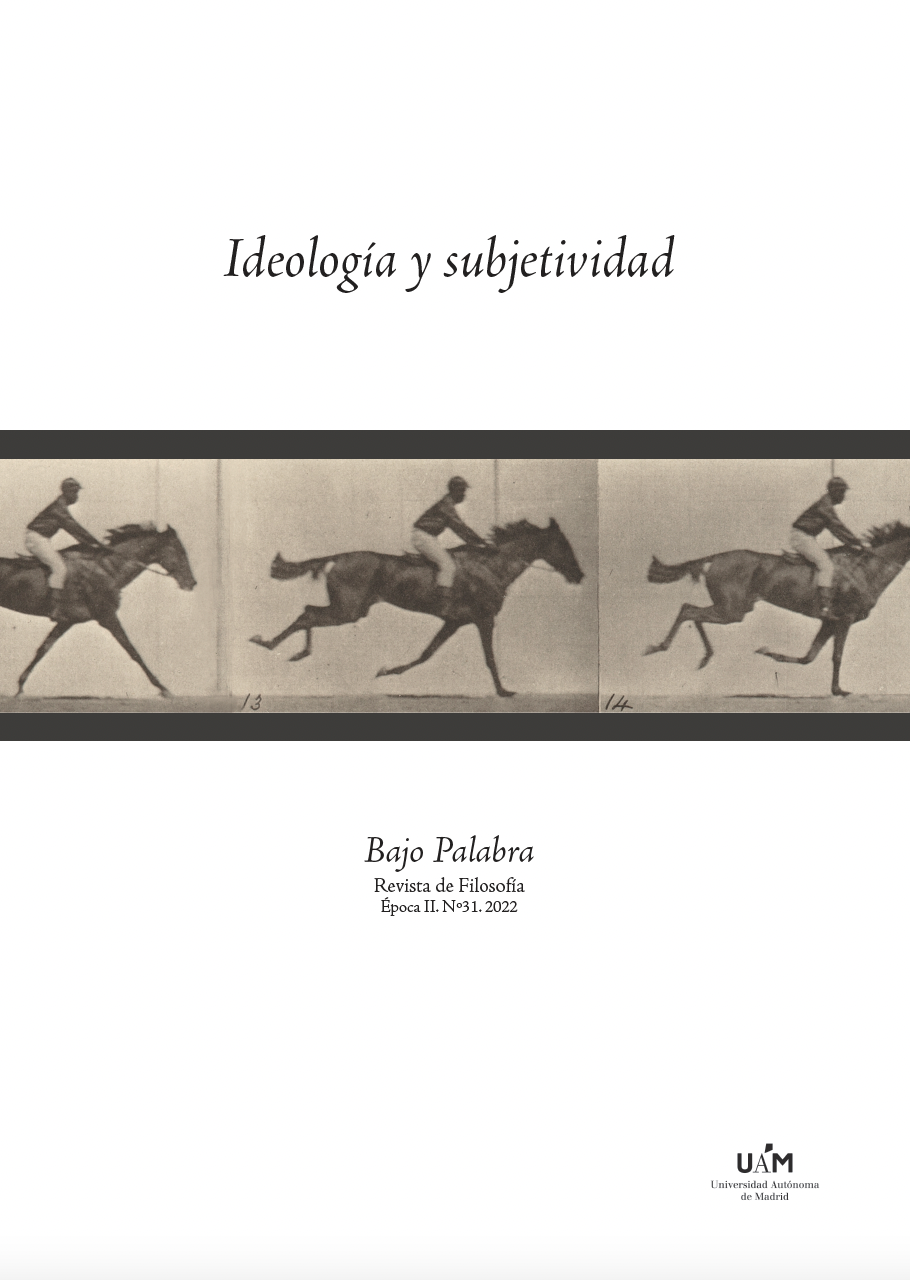Keywords:
chaos, cosmos, ideal, idol, noise, anatopiaCopyright (c) 2022 Jorge Brioso

This work is licensed under a Creative Commons Attribution 4.0 International License.
Abstract
Is it possible to produce a reflection about
ideology after the exhaustion of the interpretative
resources imposed by the Philosophy of
Suspicion? This essay answers affirmatively to
the former question. One assumes here that
the two tasks that distinguish the philosophical
enterprise, building of Ideals and demolition
of Idols, cannot exist independently of
each other. The Ideal and Idols are the heads
and tails of the same concept. What I am
going to analyze here is a falsification, an inversion,
a distortion that makes possible the
practices linked to them. The inversion, falsification,
distortion that I am going to analyze
here is linked to the ideal of literary autonomy,
essential to the meaning of the modern
work of art. The task that I have proposed to
myself: to analyze a distortion that instead of
being an obstacle to a practice is essential to
its function, places me before the problem of
ideology in a very singular perspective. What
I assert here has the following consequences:
the idol, the distorted image of something,
plays an essential role in its best performance.
Between the many perspectives that one can
use to study the myth of literary autonomy I
privilege the one that studies the different gestures—
rhetorical, semantic, prosodic— that
a work of art uses to detach itself from what
comes before and outside it. In this essay, I explore
the relationship between the work of art
and what comes outside and before it during
the classic and the modern times.
Downloads
References
Agamben, G., Infancia e historia, Buenos Aires, Adriana Hidalgo, 2007.
Agamben, El lenguaje y la muerte, Valencia, Pre-textos, 2002.
Althusser, L., Ideología y aparatos ideológicos del Estado. Freud y Lacan, Nueva
Visión, Buenos Aires, 1988.
Apolodoro, Biblioteca, Madrid, Gredos, 2002.
Bacon, F., Novum Organum, New York, P. F. Collier & Son, 1911.
Badiou, A., San Pablo: La fundación del universalismo, Madrid, Anthropos, 1991.
Barthes, R., El placer del texto, México, Siglo XXI, 1982.
Blanchot, M., El libro que vendrá, Caracas, Monte Avila Editores, 1959.
Colli, G., La sabiduría griega III, Madrid, Trotta, 2010.
Borges, J.L., “Una vindicación de la Cábala”, Obras Completas. Tomo I. Buenos
Aires: Emecé Editores, 1996, pp. 209-213.
Deleuze, G., Lógica del sentido, Buenos Aires, Paidós, 2005.
Flaubert, G., Cartas a Louise Colet, Madrid, Siruela, 2003.
Gadamer. H-G., Verdad y Método I, Salamanca, Sígueme, 1977.
García Gual, C., Antología de la poesía lírica griega. Siglos VII-IV A. C, Madrid,
Alianza Editorial, 1988.
Gilson, Étienne, La filosofía de la Edad Media, Madrid: Gredos, 1958.
Heidegger, M., Aportes a la filosofía. Acerca del Evento, Buenos Aires, Editorial
Almagesto y Editorial Biblos, 2003.
Hesíodo, “Teogonía”, Obras y fragmentos, Madrid, Gredos, 2006.
Kirk, G. S, Raven, J. E. y Schofield, M., Los filósofos presocráticos, Madrid, Gredos,
Lacoue-Labarthe, P. y Nancy, J-L., El absoluto literario, Buenos Aires, Eterna Cadencia,
Mallarmé, S., The Book, Cambridge, Exact Change, 2018.
Mallarmé, S., “Oxford. Cambridge. La música y las letras”, Prosas, Madrid, Alfaguara,
, pp. 200-226.
Martí, J., Poesía completa. Tomo I, La Habana, Letras Cubanas, 2014.
McGuirk, B., “From ecriture to oralite in Cesar Vallejo’s Trilce I”, The poetry and
poetics of Cesar Vallejo, Wales, The Edwing Mellen Press, 1997.
Nietzsche, F., Obras Completas. Vol. IV, Madrid, Tecnos, 2016.
Ortega y Gasset, J., Obras Completas. Tomo VI, Madrid, Revista de Occidente y
Taurus, 2006.
Ortega, J., La teoría poética de Cesar Vallejo, USA, Del Sol Editores, 1986.
Platón, República, Madrid, Gredos, 1988.
Poe, E. A., “The Philosophy of Composition”, Edgar Allan Poe: Poetry, Tales, and
Selected Essays, New York, Library of America, 1996, pp. 1373-1386.
Rowe, W., Hacia una poética radical, Rosario, Beatriz Viterbo Editora, 1996.
Sarna, N.M., The JPS Torah Commentary. Genesis, New York, The Jewish Publication
Society, 1989.
Schlegel, F., Ideas con las anotaciones de Novalis, Valencia, Pre-Textos, 2011.
Snell, B., El descubrimiento del espíritu, Acantilado, Barcelona, 2007.
Tatarkiewiez, W., “Creación: historia de un concepto”, en Criterios, nº 30, julio-
diciembre, 1993, pp. 238-257.
Vallejo, C., “Contra el secreto profesional”, Ensayos y reportajes completos, Lima,
Pontificia Universidad Católica del Perú, 2002, pp. 477-535.
Vallejo, C., Obra poética, ed. Américo Ferrari, Madrid, París, México, Buenos
Aires, São Paolo, Rio de Janeiro y Lima, ALLCA XX, 1996.
Vallejo, C., Trilce, ed. Julio Ortega, Madrid, Cátedra, 1993.
Žižek, S., El sublime objeto de la ideología, Buenos Aires, Siglo XXI, 1992.
